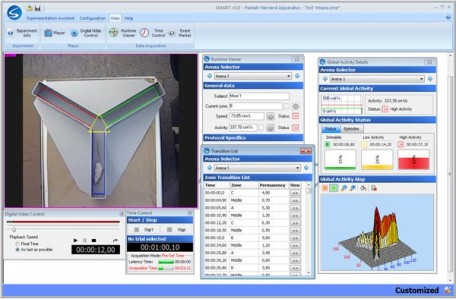Authors
N. K. Kim, B. H. Choi, X. Huang, B. J. Snyder, S. Bukhari et al.
Lab
Inha University College of Medicine, Department of Physiology, Incheon, Korea ; Yonsei University, College of Medicine, Department of Neurosurgery, Seoul, Korea.
Journal
European Journal of Neuroscience
Abstract
Granulocyte–macrophage colony-stimulating factor (GM-CSF) is a hematopoietic cytokine that has the potential for clinical application. The biological effects of GM-CSF have been well characterized, and include stimulation of bone marrow hematopoietic stem cell proliferation and inhibition of apoptosis of hematopoietic cells. In contrast, the therapeutic effects of GM-CSF on the central nervous system in acute injury such as stroke and spinal cord injury have been reported only recently. To better understand the protective effect of GM-CSF on dopaminergic neurons in Parkinson’s disease (PD), we investigated the effect of GM-CSF on the survival of dopamine neurons and changes in locomotor behavior in a murine PD model. We investigated the neuroprotective effects of GM-CSF in 1-methyl-4-phenylpyridinium (MPP+)-treated PC12 cells as well as in embryonic mouse primary mesencephalic neurons (PMNs) in vitro. To investigate the role of GM-CSF in vivo, we prepared a mouse 1-methyl-4-phenyl-1,2,3,6-tetrahydropyridine (MPTP) PD model, and examined the effects of GM-CSF on dopaminergic neuron survival in the substantia nigra and on locomotor behavior. Treatment with GM-CSF significantly reduced MPP+-induced dopaminergic cell death in PC12 cells and PMNs in vitro. GM-CSF modulated the expression of apoptosis-related proteins, Bcl-2 and Bax, in vitro. Furthermore, administration of GM-CSF (50 _g/kg body weight/day) in vivo for 7 days protected dopaminergic neurons in the substantia nigra and improved locomotor behavior in a mouse MPTP model of PD.
BIOSEB Instruments Used
Smart 3.0 - Video Tracking System (SMART30)
Keywords/Topics
Domaines de recherche divers
Source :

 Douleur - Allodynie/Hyperalgésie Thermique
Douleur - Allodynie/Hyperalgésie Thermique Douleur - Spontanée - Déficit de Posture
Douleur - Spontanée - Déficit de Posture Douleur - Allodynie/Hyperalgésie Mécanique
Douleur - Allodynie/Hyperalgésie Mécanique Apprentissage/Mémoire - Attention - Addiction
Apprentissage/Mémoire - Attention - Addiction Physiologie & Recherche Respiratoire
Physiologie & Recherche Respiratoire




































 Douleur
Douleur Système Nerveux Central (SNC)
Système Nerveux Central (SNC)  Neurodégénérescence
Neurodégénérescence Système sensoriel
Système sensoriel Système moteur
Système moteur Troubles de l'humeur
Troubles de l'humeur Autres pathologies
Autres pathologies Système musculaire
Système musculaire Articulations
Articulations Métabolisme
Métabolisme Thématiques transversales
Thématiques transversales Congrès & Meetings
Congrès & Meetings 